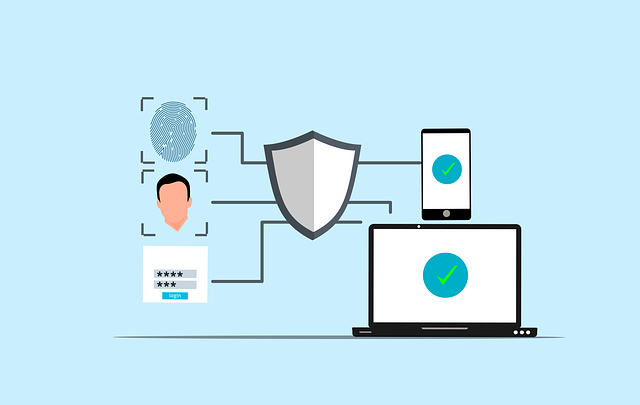The Ultimate Guide to Crypto Wallets in 2025: How to Secure Your Digital Assets
Author: Jameson Richman Expert
Published On: 2025-01-24
Prepared by Jameson Richman and our team of experts with over a decade of experience in cryptocurrency and digital asset analysis. Learn more about us.
As we venture into 2025, the realm of cryptocurrencies continues to evolve, leading to the necessity of understanding one of the most crucial components of the crypto ecosystem: crypto wallets. Whether you're a novice investor or a seasoned trader, having the right wallet can mean the difference between the safe storage of your digital assets and potential loss. This guide will explore the various types of crypto wallets, how to choose the best one for you, and the essential security measures you must take to protect your investments.

What is a Crypto Wallet?
A crypto wallet is a software program or device that allows you to store, send, and receive cryptocurrencies. Unlike traditional wallets—which hold physical cash—crypto wallets don’t store your currency in a physical form. Instead, they hold your public and private keys, which you need to access your cryptocurrency on various blockchains. In simple terms, a crypto wallet is your gateway to the world of digital assets.
Types of Crypto Wallets
There are several types of crypto wallets, each with its features, advantages, and disadvantages. Understanding these can help you select the right wallet for your needs.
1. Software Wallets
Software wallets are applications that can be installed on your computer or mobile device. They are very user-friendly and often free of charge. Software wallets can further be categorized into:
- Desktop Wallets: Installed on a personal computer, they offer complete control over your keys and funds. However, they can be vulnerable to malware attacks.
- Mobile Wallets: These wallets are designed for smartphones, allowing you quick access to your funds. They are ideal for everyday transactions but may lack some security features.
- Web Wallets: Accessed through a browser, these wallets are convenient but depend heavily on security measures taken by the service provider.
2. Hardware Wallets
Hardware wallets are physical devices that store your private keys offline. They provide better security than software wallets but come at a cost. They are perfect for long-term storage of larger amounts of crypto as they're less susceptible to online hacking.
3. Paper Wallets
A paper wallet is simply a physical piece of paper with your public and private keys printed on it. While this method provides excellent security from hacking, losing a paper wallet means losing access to your funds entirely. It’s advisable to create and store paper wallets with utmost care.
How to Choose the Best Crypto Wallet in 2025
As you embark on your cryptocurrency journey, choosing the right wallet is paramount. Here are essential factors to consider:
1. Security Features
The foremost criterion for any crypto wallet should be its security features. Look for wallets that offer two-factor authentication (2FA), backup options, and multi-signature functionality for added layer of protection.
2. User Experience
A user-friendly interface is essential, especially for newcomers. Choose a wallet that is straightforward to navigate and easy to use.
3. Supported Currencies
If you’re interested in diversifying your investments, ensure that the wallet you select supports all the cryptocurrencies you're planning to hold.
4. Accessibility
Consider whether you prefer constant access to your funds or if you are more comfortable with a wallet that focuses on bulk storage. Choose a wallet that fits your trading habits and lifestyle, whether it's a mobile wallet for daily transactions or a hardware wallet for extensive investments.

Security Best Practices for Crypto Wallets in 2025
Ensuring the security of your crypto assets transcends the initial choice of a wallet. It involves adopting prudent practices to maintain safety and security. Here are some vital tips:
1. Regular Software Updates
Always keep your wallet software updated to protect against vulnerabilities and incorporate new features.
2. Use Strong Passwords
Use complex passwords and change them regularly. Avoid using easily guessed information such as birthdays or names.
3. Enable Two-Factor Authentication
Implement 2FA on all crypto-related accounts for additional security. This method requires a second form of identification beyond just a password.
4. Backup Your Wallet
Regularly backup your wallet to ensure you do not lose access to your funds in case of software failure or theft.
5. Be Wary of Phishing Scams
Always verify the website URL you’re accessing. Avoid clicking on unsolicited emails or links that could lead to phishing sites designed to steal your information.
Popular Crypto Wallets of 2025
Here are some popular wallet choices in 2025 widely reviewed for their features and reliability:
- Ledger Nano X: A hardware wallet known for its robust security and Bluetooth accessibility.
- Trezor Model T: Another leading hardware wallet with a large touchscreen for easy operation.
- Exodus Wallet: A software wallet that is particularly user-friendly and supports numerous cryptocurrencies.
- Coinbase Wallet: A mobile wallet linked to its exchange, ideal for beginners.
- MetaMask: A popular web wallet for interacting with decentralized applications and managing Ethereum-based tokens.
Conclusion
As cryptocurrency continues to gain traction, understanding how to effectively manage your assets is crucial. A reliable crypto wallet acts as both a shelter and a doorway to your digital assets. By choosing the right wallet, following best security practices, and staying informed about the evolving crypto landscape, you can secure your investments and navigate the world of cryptocurrencies with confidence.
To get started with trading and storing your crypto safely, consider signing up on a reputable exchange like Binance to access various wallets and trading options.